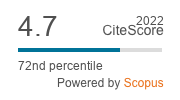Fumonisins are a class of mycotoxins occurring in foods and feeds at concentrations that may be of concern to human and animal health. Meta-analysis was used to predict the probability of fumonisin B1 (FB1) exposure reduction that may be achieved in the maize grain supply regionally over time through use of insect resistant (Bt) varieties and how analytical outcomes may be influenced by data richness. All analyses showed the positive effect of Bt maize to reduce FB1 concentrations in grain relative to comparable non-Bt maize, but the effect size was smaller for variance-weighted data than for the less statistically robust data sets. Variance weighted data indicated a 14 to 18% decrease in FB1 concentrations in Bt maize relative to a comparable non-genetically engineered variety, whereas a replication weighted approach indicated a 67% decrease. Understanding the effects of data selection criteria on outcomes of meta-analyses are useful in policy considerations related to the benefits of wide-area adoption of fumonisin mitigation practices, such as for economic analysis of the benefit of widespread Bt adoption, prediction of both short and long-term exposures to FB1 in feed rations and understanding variation of FB1 presence in maize sourced for food products.
RESEARCH ARTICLE
Meta-effect of insect resistant maize on fumonisin B1 in grain estimated by variance-weighted and replication-weighted analyses
K.M. Cappelle Related information
1Department of Agronomy, Iowa State University, 2551 Osborne, Ames, Iowa 50011, USA.
, G.P. Munkvold Related information2Department of Plant Pathology and Microbiology, Iowa State University, 160 Seed Science, Ames, Iowa 50011, USA.
, J.D. Wolt Related information1Department of Agronomy, Iowa State University, 2551 Osborne, Ames, Iowa 50011, USA.
*Corresponding author: jdwolt@iastate.
*Corresponding author: jdwolt@iastate.
World Mycotoxin Journal: 12
(2)- Pages: 141 - 151
Published Online: March 04, 2019
Abstract
Keywords: mycotoxin, GMO, meta-analysis, Fusarium
2023 Journal Impact Factor
2.0
source: Journal Impact Factor 2023™ from Clarivate™

Institutional Offers
For institutional orders, please contact [email protected].
Purchase Options
-
P. Battilani and M. Camardo Leggieri
-
F. Xu, R.C. Baker, T.B. Whitaker, H. Luo, Y. Zhao, A. Stevenson, C.J. Boesch and G. Zhang
-
A.O. Aasa, F.F. Fru, O.A. Adelusi, S.A. Oyeyinka and P.B. Njobeh
-
R. Barkai-Golan and N. Paster
-
F. Wu
-
V. Ostry
-
R. Bandyopadhyay, A. Ortega-Beltran, A. Akande, C. Mutegi, J. Atehnkeng, L. Kaptoge, A.L. Senghor, B.N. Adhikari and P.J. Cotty
-
A. Logrieco, A. Moretti and M. Solfrizzo
-
G. Schatzmayr and E. Streit
-
B. Grenier and I. Oswald



